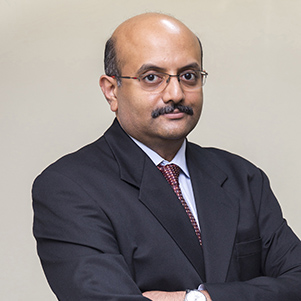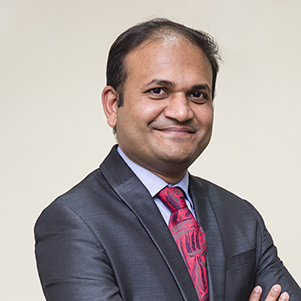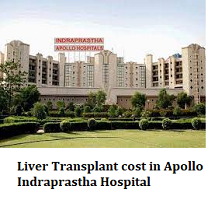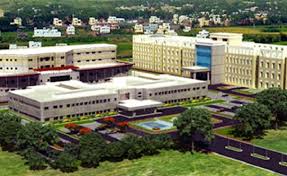What are the diseases which can lead to end-stage renal failure and need kidney transplantation as a treatment option?
● Acute liver disease like hepatitis, long-standing infection, drug-induced injury.
● Chronic liver diseases due to long-term disease.
● Hepatitis -B, Hepatitis-C
● Excessive alcohol abuse
● Autoimmune hepatitis
● Biliary atresia(inborn liver disease)
● NAFLD( Non-alcoholic Fatty Liver Disease)
● Metabolic disorder
● Cirrhosis
In the case of adult patients who need liver transplant surgery, are mostly affected due to cirrhosis.
How can a surgeon decide whether to go for a liver transplant or not?
Apart from the above reasons, following are the conditions, based on which your surgeon can determine whether you will be ready for this surgical procedure or not.
● Whether the patient is having a history of Tuberculosis, HIV
● The overall physical condition of the patient
● The severity of the liver disease
● Mental support patients are getting from their family and friends.
● Your surgeon will evaluate whether liver transplant surgery will help extend the patient’s life or not.
If the patient who needs a liver transplant is already suffering from cancer that has spread throughout his body, the surgeon will decide not to go for the surgery as the patient is
already suffering from a life-threatening disease.
● On the other hand, if an adult person is suffering from cirrhosis and in need of a liver transplant, your surgeon will prioritize this patient over another, as it will increase the overall life expectancy of this patient.
Low cost Liver Transplant in India
Low cost liver transplant in Bangalore 26,714 USD.
Low cost liver transplant in Mumbai 30,594 USD.
Low cost liver transplant in New Delhi 30,040 USD.
Low cost liver transplant in Hyderabad 28,377 USD.
Low cost liver transplant in Chennai 28,931 USD.
Low cost liver transplant in Kolkata 32,257 USD.
Low cost liver transplant in Ahmedabad 28,931 USD.
Low cost liver transplant in Kochi 32,257 USD.
Who is a good candidate for liver transplant surgery?
● A person who has End-stage Liver Disease, but should be overall healthy enough for undergoing the complete surgical procedure without any complications.
● Who is a non-smoker and non-alcoholic, as smoking can affect the recovery process and can increase postoperative complications.
● A person who is free from any other systemic diseases like liver disease, diabetes, high blood pressure, or vasculitis.
● And those who can continue the post-surgical medications lifelong without fail and can follow all the instructions mentioned by the doctor.
What are the types of liver donors for Liver Transplantation?
Livers can be collected from a live person as well as from a deceased or a dead person. If it is taken from a dead person, the procedure is called cadaveric liver transplantation. The donors can be
● Related live donor- when a kidney is taken from a first-degree relative such as brother, sister, parents, and children. This is possible because a healthy donor can give a portion of his/her kidney to their known recipients as the liver is the only internal organ that can regenerate on its own. In that way, you are getting to help others and you can have your liver too.
● In most cases, a close relative is preferred as the tissue type and blood group both are likely to have a good match.
● Unrelated living donor- in this case, a liver is taken from a person who is not connected to the patient and a stranger to the recipient.
● Deceased patient- here liver is collected from a dead person. Here the donors are mostly victims of road accidents, brain tumors, or brain hemorrhages who have been declared as brain dead by the hospital authority.
What are the precautions you should take before undergoing liver transplant surgery?
● Consult all your queries related to the procedure with your surgeons and clear your doubts.
● Make sure you inform all your past and present medical history to your doctor.
● If you are prone to some allergic reactions or you are taking any herbal supplements, you need to mention that too.
● If you are under any medications especially on blood thinners like aspirin or some NSAIDs like ibuprofen, naproxen you should inform your doc and stop or adjust the dosage of those medications before surgery according to your physician’s advice.
● If you are anemic, you should start having iron supplements before you go for surgery.
● Women on OCP(Oral contraceptive pill) should stop taking pills at least before one month of surgery.
After getting confirmation from the lab reports and medical examination that you are undergoing liver transplantation surgery, your surgeon or medical personnel will guide you and your family about the Dos and Don’ts before surgery.
What are the tests you should go for before undergoing a liver transplant?
Before this cosmetic surgery, your surgeon will evaluate all the following points
– Complete blood count (CBC)
– Lipid profile(cholesterol test)
– General body weight
– Urine test
– MRI scan
– X-ray
– Pap smear tests for women over 40 years of age.
– Mammography for women over 30 years of age.
– Colonoscopy for patients over 50 years of age.
– Echocardiography
Hence, you should be ready to undergo a lot of tests.
What are the risks you might face after liver transplantation surgery?
● Allergic reactions to the anesthetic solution.
● Biliary duct blockage by a blood clot.
● Transplant rejection by the recipient’s body
● Sudden renal failure even after successful transplantation.
● Bleeding or hemorrhage
● Increased risk of infection.
For how much time do you have to take medications?
After successful kidney transplantation, you have to be under anti-rejection or immunosuppressive medications for lifelong.
Will there be any side effects of these prolonged medications?
● Weight gain hair loss
● Acne
● Skin infections
● Skin cancer
● Lymphoma
● Sudden weight gain
● Bone thinning
● Hypertension
● Increased blood sugar level.
How much time should a patient stay in the hospital after the surgery?
This depends on the type of anesthesia the patient has undergone. In liver transplant patients, as the procedure has been done under general anesthesia, the patient might have to stay overnight for 21 days.
After successful transplantation, your medical personnel will evaluate all the tests along with the liver function during this time. Make sure that someone should be there to accompany the patient after getting discharged from the hospital.
Generally after how many days patients can start their regular activities?
Within one month patients can resume their daily lifestyle. That’s why patients are advised to take 5-6 weeks off from their job and take an ample amount of rest. This will help in quick recovery but any kind of strenuous activity or vigorous exercise should not be done without medical supervision.
What are the FAQs you should ask your surgeon about after liver transplantation surgery?
● What are all the medications you have to take?
● Will there be any follow-up visits?
● When can you resume your work and regular lifestyle?
● When can you start doing exercises?
● How to do the postoperative wound management and when the stitches will be removed?
What are the diet and instructions you need to follow after surgery?
You need to have
● Low fat, low salt diet as excessive salt intake can cause edema or fluid buildup inside the body after the surgery.
● 5 servings of food along with fresh fruits and vegetables
● Stay hydrated all the time. Increase water and fluid intake specifically just after the surgery.
● Take calcium and phosphorus enriched food like dairy products.
● Avoid fruits like grapes as they can interfere with the actions of anti-rejection medications.
● Eat a protein-rich diet like lean meat, fish, soy products
● Reduce eating outside as can make yourself prone to infection
● Be regular with your medications.
● Keep your blood pressure, diabetes always in check.
What is the life expectancy after undergoing successful kidney transplant surgery?
There is an 89% chance of having a one-year survival rate and a 75% chance of five-year survival after surgery.
What are the instructions you need to follow a day before surgery?
● Do not take any food or liquid 6 hours before surgery
● Avoid heavy meals for at least one day before the surgery, try to keep your bowel empty before undergoing surgery. This will reduce nausea before surgery.
● You should scrub with ab antibiotic soap the night before and once in the morning before the surgery.
What are some FAQs you should ask your surgeon about the liver transplant procedure?
● What is the success rate of liver transplant surgeries done by your surgeon?
● How is it possible for a deceased person’s liver to become functional after the surgery?
● Will the new liver start acting right after transplantation?
● What will happen if my body rejects the new liver?
What to do if your body rejects the new liver?
You will be under immunosuppressants after surgery. Even after that, if your body rejects, it will happen within the first few only.
You might experience the following symptoms
● Reduced urine output
● Tiredness
● Fatigue
● Flu-like symptoms, if you are going to face organ rejection. You should contact your surgeon immediately if you are going through these symptoms.
How can you avail a donor for liver transplant surgery?
As it depends on multiple factors.
● Whether you are an eligible recipient or not?
● Based on the MELD ( model of end-stage liver disease) score.
● Your name will be on a list that will be decided by your MELD score.
● Higher the score you get, the higher the position you will occupy on the list, more
easily you will find the organ you need.
What is a MELD score?
Model of End-Stage Liver Disease is based on the
● Blood test report.
● Creatinine level to check your kidney as well liver functionality
● INR(International Normalized Ratio) indicates the ability of your liver’s performance and how effectively your liver is making those blood clotting proteins which is essential for bleeding to stop. A normal INR level of 1.0 is considered good for undergoing liver transplant surgery.
What will happen if two people with similar MELD scores compete for getting a liver for
liver transplant surgery?
If two people with similar scores compete for the same organ then the person who has waited for a longer time will get the liver. But if a person with a rare blood group and higher MELD score has waited for a longer time also, he might not get the organ at the stipulated time because of the rare blood group he has.
What will happen if you choose a deceased donor’s liver over a living one?
A healthy liver from a living person that is functioning properly can easily get accepted by your body. As they remain outside the recipient’s body for a lesser amount of time, they can function well and perform better than the liver taken from a deceased person. Once you find your donor, the rest of the procedure happens very quickly.
The larger right lobe of the liver can be donated to the adult patients and the smaller left side of the liver is being donated to the child patients suffering from biliary atresia or Pediatric End-Stage Liver Disease.
What is the average waiting time for getting a liver for an eligible patient?
It’s 145 days for an adult patient and 72 days for a child patient.
How to choose doctors if you want to go for a liver transplant surgical procedure?
● You can go through the reviews of those who have already been through liver transplant procedures in multiple medical forums and if you are worried about some negative review, you can always consult with your doctor about the matter.
● Look for the experience of general surgeons and positive patient stories.
● You can also look for the success rate of liver transplantation surgery done by your surgeon.
Who are the best doctors for performing liver transplants?
Well-experienced and board-certified general surgeons and hepatologists can perform the procedure. And make sure to check the accreditation of the hospital from where you are getting your liver transplantation surgery done.
Why should you go for liver transplant surgery in India?
Along with the high-quality lifestyle here in India, you will get well-experienced and skilled surgeons who are comfortable with the best and latest available technology. You will get personalized care from trained medical personnel. Hence it ensures shorter hospital stays and quicker recovery.
Any botched-up case of liver transplant surgery in India?
To date no such cases have been reported as here in Bangalore, surgeons are way more skilled and experienced. But to avoid these kinds of cases, you should choose your surgeon carefully.
What are the precautions you need to take if you want to be a donor for liver transplant surgery?
● If you want to be a donor for someone and you are overweight, you will not be considered as an eligible donor. Try to lose some weight before the surgery date as those extra pounds can strain your liver after surgery.
● Restrict your alcohol intake- if you are taking alcohol occasionally, you should avoid it at least for one to two months before surgery. If you have a history of alcohol abuse in the past, you should inform your doctor. You might have to undergo some tests and biopsy before surgery as your doctor will evaluate the overall function of your liver before donating it to another patient.
● Avoid smoking for at least two to three months before surgery as this can reduce the amount of oxygen and blood circulation in your body. Hence reducing the complications after surgery and helping in early recovery.
FAST FACTS to keep your liver healthy after surgery:
● No alcohol abuse
● Reduce obesity
● Quit smoking
● Keep your cholesterol level in check
● Reduce the overall acetaminophen usage.
● Include regular exercises
● Minor lifestyle changes are necessary. Try to avoid a sedentary lifestyle.
● Watch your diet
Do you feel that the cost is way out of your budget? Are you looking for insurance?
In India, the majority of health insurance coverage is for serious ailments. That’s why the chances of getting coverage for the procedure are higher. You can consult with your financial advisor related to the matter and explore the possibilities along with your surgeon. Though nowadays EMI facilities are available in some financial agencies. Even after that, you are feeling it’s difficult for you to avail yourself of the insurance, you can always ask your doctor to write one letter to your insurer describing the importance of this surgery on your health. If your insurance company provides coverage also, it will bear a partial amount of its budget. So make sure you read the details and go for it.
Even if your insurance company bears it now, you might have to pay a higher premium for later. Takeaway- you should always choose a liver transplant surgical procedure and you should go for it whenever you will find a living donor. If you are going through some life-threatening diseases and don’t know what to do in this crisis, please feel free to contact us. We are always there to help you out.



































